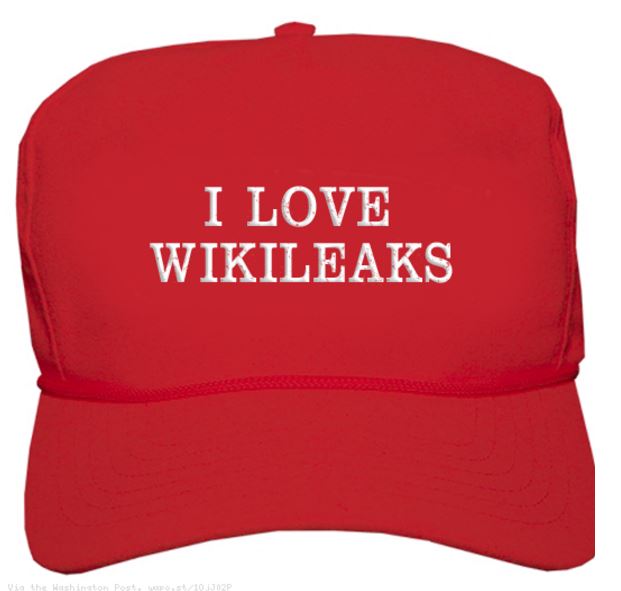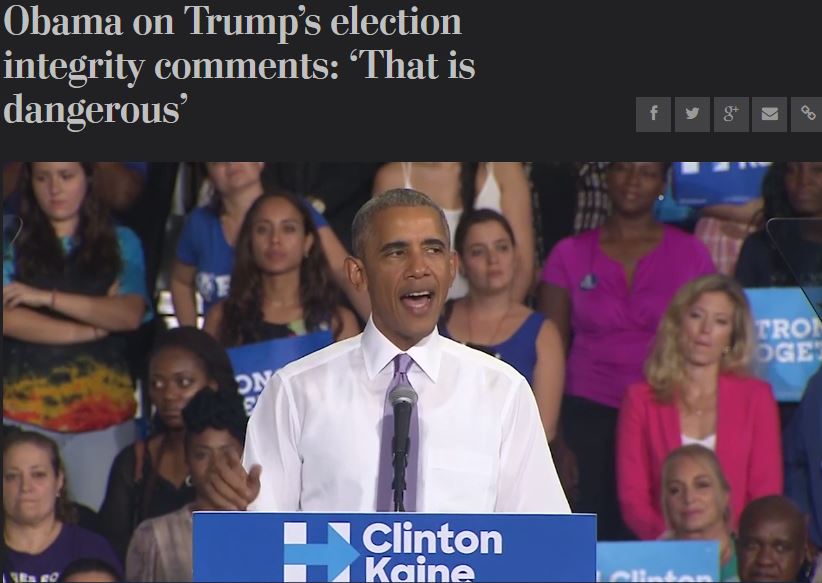Unfortunately. Because if collusion was a crime, the “Russia investigation” would be over. Obviously the Trump campaign “colluded”. They did it proudly and in broad daylight all through the summer of 2016. Remember?

Maybe you’re thinking, “No, that was just the appearance of collusion. Using ‘oppo’ that originated from Russian hacking is different from seeking it out.” Maybe so, or maybe that’s a distinction without a difference. There was a time, Before Tweety, when just the appearance of misconduct was enough to sink a candidate, but there’s no use pining for an irrelevant past, especially one in which we were only pretending that principles and integrity were real things.
The “smoking gun” of collusion is the meeting that Little Tweety (or as my grandfather might have called him, “Tweetski”, or, perhaps, “Tweeteleh”) took with the Russians. They told him they had some dirt on Hillary, and Tweetski rushed right over to see what goodies they had for him.
His defense of this behavior was that they didn’t have anything too exciting, so nothing came of it, so no big deal, so the Failing New York Times can just shut up about it already. But that misses the point: the meeting itself was the collusion, not what might have been said in it.
But, alas, collusion is not a crime. So what are we actually investigating? It’s all a bit confusing, which in itself is another huge victory for the forces of chaos, and for those who thrive on chaos and benefit from it. But the bottom line is we’re still looking for the fire amidst all the smoke.
The fire might be conspiracy to violate election laws, for example, if the Russians directly provided anything “of value” to Trump. Or it might be a violation of the Computer Fraud and Abuse Act if the campaign told the Russians what exactly they needed them to hack. And of course the biggest issue would be lying under oath, for example in registration forms or security documents.
I highly doubt any form of “lying”, under oath or otherwise, could sink Tweety at this point, as everyone knows he lies all the time and no one really cares. The other day I wrote about Scott Adams’ explanations and apologies for Trump’s behavior, and, on the subject of Trump’s constant and outrageous lying, he said that everyone knows what he means and he lies in the “right direction”. The example he gave was Trump’s assertion that on 9/11 he saw thousands of Muslims in New Jersey dancing in happiness. This never happened, of course, but Adams explained that everyone understood him to mean that many Muslims worldwide thought that 9/11 was some sort of “victory” and were happy about it, and that everybody should be able to agree that this was certainly true.
Lying has thus been redefined and downgraded, and Trump’s use of language is frustratingly imprecise and ambiguous in all cases anyway. So if the Russian investigation “proves” some lies were told along the way, the response from those who matter (Republicans in Congress) will almost certainly be, “So what?” Same as Adams, actually.
But none of that is what I really want to stress today. I’m thinking about the Russian motivation for interfering in the election in the first place. You may not remember that they didn’t actually think Trump was going to win at any point. So what were they doing it for?
Their goal was to undermine confidence in the whole voting process and create controversy that would persist after the election and would diminish the effectiveness of the new president (presumably Hillary Clinton). They would thereby diminish American standing in the world by showing that the election process was flawed, that at least one of the candidates was indeed “crooked”, and that other models of selecting leaders were no better or worse. In short, there would be much less reason to regard America as a shining example of “Democracy”, and much less reason to regard democracy as a system preferable to any other.
My point for today is that they really needn’t have bothered. For months leading up to the election, Tweety was already loudly proclaiming that the whole thing was rigged and “unfair” and suggesting that it wouldn’t be over after the vote. He was threatening to contest “the peaceful transfer of power” that distinguishes our country from dictatorships, theocracies, and sometimes even monarchies.
During the final presidential debate, Trump refused to say whether he would accept the election results, and at one point said he would accept them only if he won. Speaking about Trump’s view of the integrity of the elections, President Obama pointed out that “That is dangerous…this is not a joking matter”.

Trump had his troops so riled up that there was a genuine fear of violence in the streets if Hillary won, and many Hillary supporters actually took a small measure of consolation in Trump’s victory, as this violence was thus averted in the only way it could have been.
Donald J. Trump undermined our electoral process and diminished our standing in the world far more effectively on his own than any army of Russian operatives could have.
Collusion may not be a crime, but for me and millions of others, Trump is certainly a criminal.

So, to paraphrase A. Hamilton 220 years ago, our system’s deepest risk will occur when we freely elect a very deep, dark scoundrel who’s bad to the bone. Okay, so 70 million people failed Civics 101 and now we’re f’ed. Good to know.
LikeLike
Or, as H.L. Mencken put it: “As democracy is perfected, the office of president represents, more and more closely, the inner soul of the people. On some great and glorious day the plain folks of the land will reach their heart’s desire at last and the White House will be adorned by a downright moron.”
LikeLike